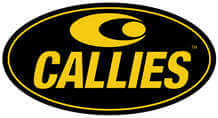
MS Access As A Dev Tool
Access continues to be a highly efficient tool for business database development.
The Best Microsoft Access Database Solutions owner, consultant, and principal programmer is Alison Balter - a recognized expert Microsoft Access consultant. Alison is the author of 15 Microsoft Access training books and 200+ training videos. She is a frequent guest speaker at MS Access conferences and has developed hundreds of applications for businesses of all types.
We know your business data is important; we listen to your concerns, ask questions, and gather information from all stake holders. We discuss your needs and requirements for your database. We find out what you want, why you need various features so we can obtain as much information as possible. Once we have the information we need, we work with you to design the proper database architecture, plus the dashboards, the questions (queries), forms, and reports you need for an excellent database system.

We also create websites designed for speed to display your data accurately, using ASP.NET technology. Fast, secure, and robust, our ASP.NET web sites and web applications give you true business tool for finding and displaying information dynamically on the web.






Access continues to be a highly efficient tool for business database development.

How to create a Microsoft Access application with some unique tips and tricks.

Your Access developer near me has some great info for you about using Access efficiently.
Call MS Access Solutions at (323) 285-0939 For Complimentary Consultation
Declaring a User-Defined Type
You declare a user-defined type by using a Type statement that must be placed in the module's Declarations section. You can declare types as Public or Private within a standard module. You can use types in Form and Report modules, but you cannot declare them there.Creating a Type Variable
A Type variable is an instance of the type in memory; you must declare it before you can use the type. To declare a Type variable, create a Local, Private, Module-Level, or Public variable based on the type. Depending on where you place this declaration and how you declare it (using keywords Dim, Private, or Public), you determine its scope. The same rules for any other kind of variable apply to Type variables. The Dim statement in the code that follows creates a variable called mtypTimeCardData. If you place this Dim statement in the module's General section, it's visible to all routines in that module (notice the m, indicating that it is declared at the module level).NOTE
For more information on the scoping and visibility of variables, see Chapter 8, "VBA: An Introduction."Storing Information from a Record in a Form into a Type Variable
After you have declared a Type variable, you can store data in each of its elements. The following code in the frmTimeCardHours form stores information from the form into a Type variable called mtypTimeCardData. The code declares the Type variable as a Private variable in the General Declarations section of the form.NOTE
You can find the code for this chapter in the CHAP13EX.ACCDB database on the book's sample code CD-ROM.This material orginally appeared in Alison Balter's book Mastering Microsoft Office Access 2007 Development. Reprinted here by author's permission.
When you need a Microsoft Access programmer for your Anaheim CA business, call MS Access Solutions at (323) 285-0939. We have over 25 years experience in Microsoft Access programmer solutions. We create Access database applications for all sectors, consisting of hospitals, government agencies, the U.S. military, universities, agriculture, workers services, and insurance provider. We can take care of the most advanced as well as complicated Access and also SQL Server database programming for your business as well as smaller projects, like fixing damaged Access database forms, MS Access reports, Access macros, and VBA code.
Access programmer cities we serve: Access Programmers Buffalo New York

